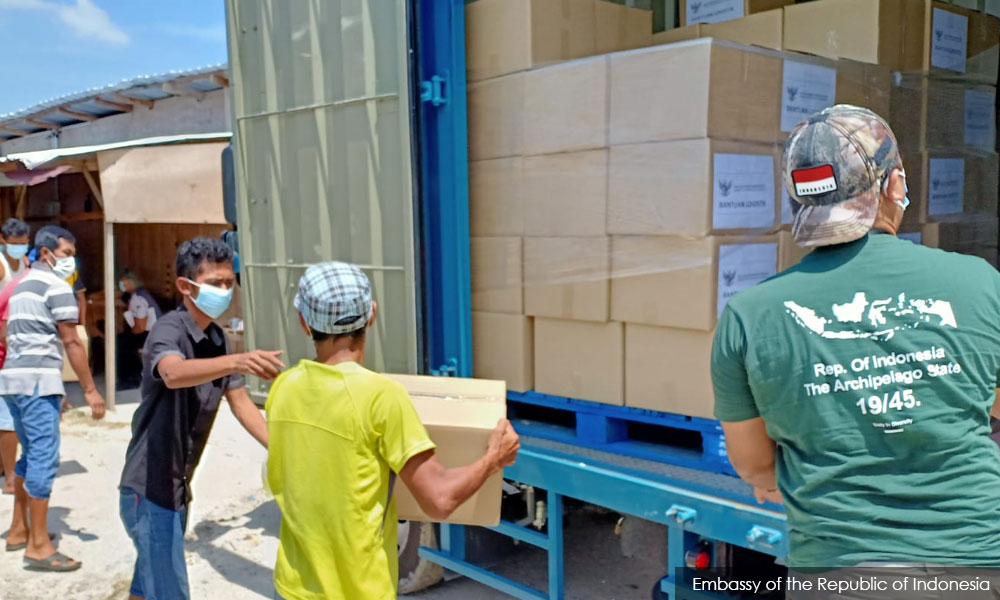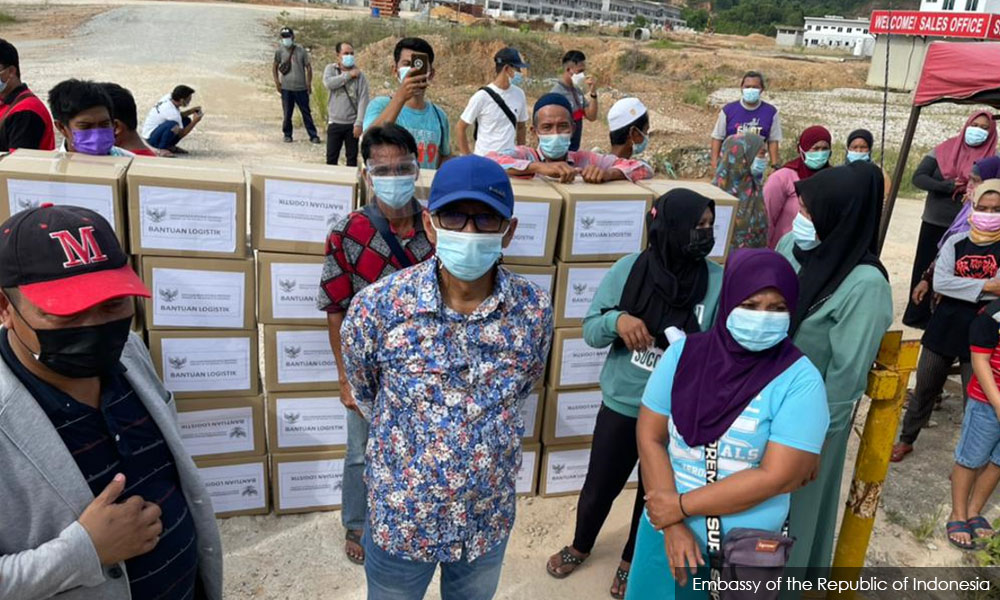The Indonesian Ambassador to Malaysia Hermono welcomed the warning to blacklist employers for non-payment of domestic worker wages and urged Malaysia to implement the full extent of the law for all other violations too.
Responding to a statement issued by Human Resources Minister M Saravanan yesterday, Hermono (above) told Malaysiakini, that the warning to blacklist employers was a positive step to educate those who felt that they didn’t need to fulfil their obligations to domestic workers.
“Currently, employers are let off after they settle the outstanding wages, but the settlement cannot be viewed as a punishment to the employer as it is the right of the worker to be paid on time.
“What’s worse is that back wages recovered do not always reflect the full amount owed as employers would also want to negotiate a lesser amount, even though the monthly wages are lower than the minimum wage,” he said.
Hermono said aside from unpaid wages, there were still many other pending violations commonly faced by domestic workers like physical abuse, retention of their passports, overwork and restricting their movements and communications.
He also called for the blacklist for violations to be extended to employers in all sectors.

“The Indonesian Embassy and the Consulate General too would blacklist all irresponsible employers and they would not be able to recruit Indonesian workers in the future.
“The full extent of the law could be applied to educate employers of worker rights,” said Hermono, who goes by a single name.
Undocumented workers have unlawful employers
He said the relevant authorities could go further with preventive actions, rationalising that the Labour Department of Peninsular Malaysia (LDPM) had the right to make random visits to homes to play a stronger role in tackling their immigration status.
“Another common violation is employers refusing to renew work passes and workers become undocumented through no fault of theirs.
“By making random checks, the LDPM could also improve worker welfare,” he said.

Hermono urged that law enforcement be applied to employers and not just workers.
“Wherever there was an undocumented worker, there was an unlawful employer who had broken the Immigration Act,” he quipped.
Working together, fighting forced labour
Referring to his recent meeting with Wisma Putra, Hermono said the ministry “understood our concern for the protection of migrant workers and have assured us that they would seriously follow up with relevant ministries and enforcement agencies concerning cases and violations.
On a similar note, Hermono shared that the Indonesian Embassy had filed 179 labour cases with LDPM in late December last year and the department responded with a consolidation plan for speedier, more effective action.
In addressing the sector most vulnerable to forced labour, Hermono said 78 of those cases were filed on behalf of domestic workers and the remaining 101 labour violation cases came from sectors like manufacturing and services.
In addition to labour violations commonly faced by domestic workers, other workers were frequently denied the freedom to return home at the end of their contract terms.
“Workers who wanted to return home at the end of their contracts were duped by employers into staying with excuses like flight cancellations or ‘no flights’ and this often led to them remaining here until their permit expired and they become undocumented,” he explained.
Hermono disclosed that the embassy had commenced frequent consultation with LDPM to discuss issues being handled by the embassy.
“We also seek similar cooperation from Malaysian Departments of Labour across the country, including Sabah and Sarawak, so our Consulate General would enjoy a similar relationship with the departments,” he said.
Hermono said the embassy’s engagement with LDPM also extended into joint rescue operations.
“Between 2021 AND 2022, we have rescued 12 domestic workers,” he said. - Mkini



No comments:
Post a Comment
Note: Only a member of this blog may post a comment.